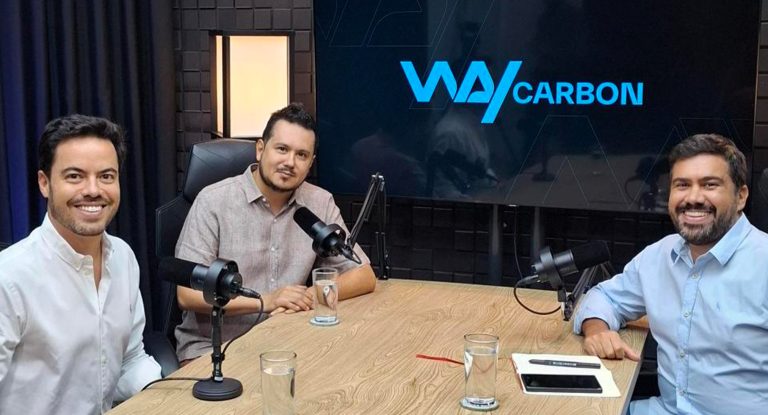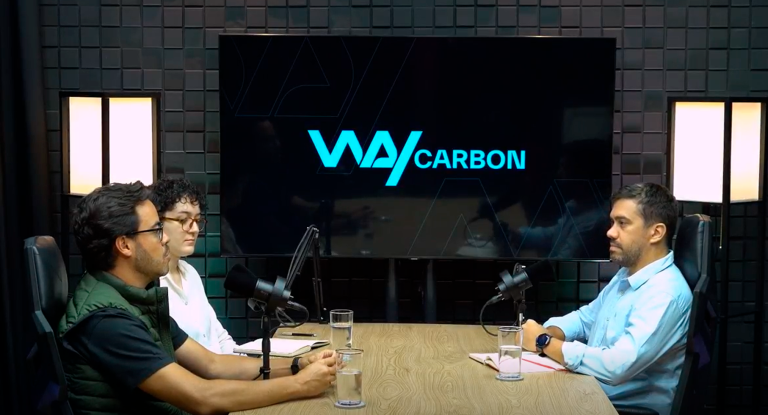WayCarbon Talks: what to expect from the sustainability agenda in 2025?

In a global context marked by conflicts, political instability, high interest rates and attenuation of ESG reporting requirements in the European Union, what can we expect from the sustainability agenda in 2025? This is the theme of the eighth episode of WayCarbon Talks, a videocast produced by the WayCarbon Learning platform, which featured the participation of Felipe Bittencourt (CEO), Henrique Pereira (COO) and Lauro Marins (Head of Consulting and Digital Solutions), from WayCarbon.
Henrique Pereira begins the chat by pointing out that questions regarding the ESG agenda occurred mainly due to a lack of understanding of concepts. “When the topic exploded, things happened very quickly in the corporate environment, without the proper attachment to concepts, and commitments were accepted without a clear plan for how they would be implemented, which resulted in frustrations and unfulfilled promises”, he says.
Felipe Bittencourt adds that, in the early days, everything was considered ESG, which took the focus away from climate change, which should be at the center of the debate as it is one of the main and most complex challenges of the 21st century. “The current context certainly hinders some aspects of the agenda. I see results arriving more slowly from now on, but I believe that by the end of the decade, in 2030, when the first period of Paris Agreement goals expires, the risk will become evident and financing for the climate transition will be implemented,” he says.
The climate paradox
Next, Pereira addresses a paradoxical issue regarding climate, the fragmentation of the themes of mitigation and adaptation. “It is clear to market and government stakeholders that mitigation requires cooperation, since emission reductions need to be global to be effective, but adaptation has not been given much space in the Paris Agreement because it is seen as a regional issue. This is contradictory because segmenting actions that should come from collective efforts generates an increase in exposure to risks. Countries have very different financial, structural and political capacities to address the issue,” explains Pereira.
Risks and opportunities
This situation makes climate change an even more relevant topic for senior management in large companies, since executives need to be prepared for the physical impacts that will come and for increasingly unpredictable and abrupt transformations that can affect operations in many sectors. “In short, organizations that need to plan for the medium and long term must take the climate issue more seriously, especially from the point of view of risk exposure. In addition, there is a growing awareness of the opportunities that the topic can offer to businesses. This is not trivial, but it is essential for the maturation of the agenda,” says Pereira.
Reports and the Omnibus package
Another highlight of the conversation was the easing of sustainability reporting requirements by the European Union, through the Omnibus package, announced in February 2025. The measures were proposed under the justification of simplifying rules and ensuring the group’s competitiveness. “We spent eight years discussing the regulation of initiatives such as CSRD, CS3D, CBAM, among others, so there is certainly a setback. On the other hand, I see the package as providing more objective guidance than is expected with these reports. In terms of adherence, large listed companies continue to report, but sustainability reports are now giving more importance to quantitative data and to points that are highly relevant to each business, reinforcing the importance of the double materiality study”, assesses Lauro Marins.
For the experts, another indication that good sustainability practices are still on the rise is the adoption of IFRS (International Financial Reporting Standards) by several countries such as Brazil, Canada, Japan, Australia and New Zealand. The international standard for disclosing sustainability information for the financial market was launched in June 2023 and reinforces the trend of integrating climate risk into organizations’ financial statements.
Watch both parts of the episode on YouTube (audio in Portuguese, turn on English subtitles).

 EN
EN  ES
ES PT
PT





